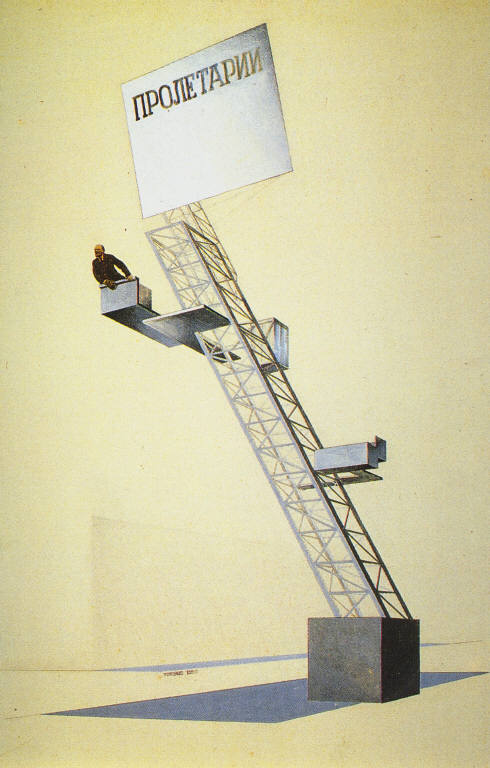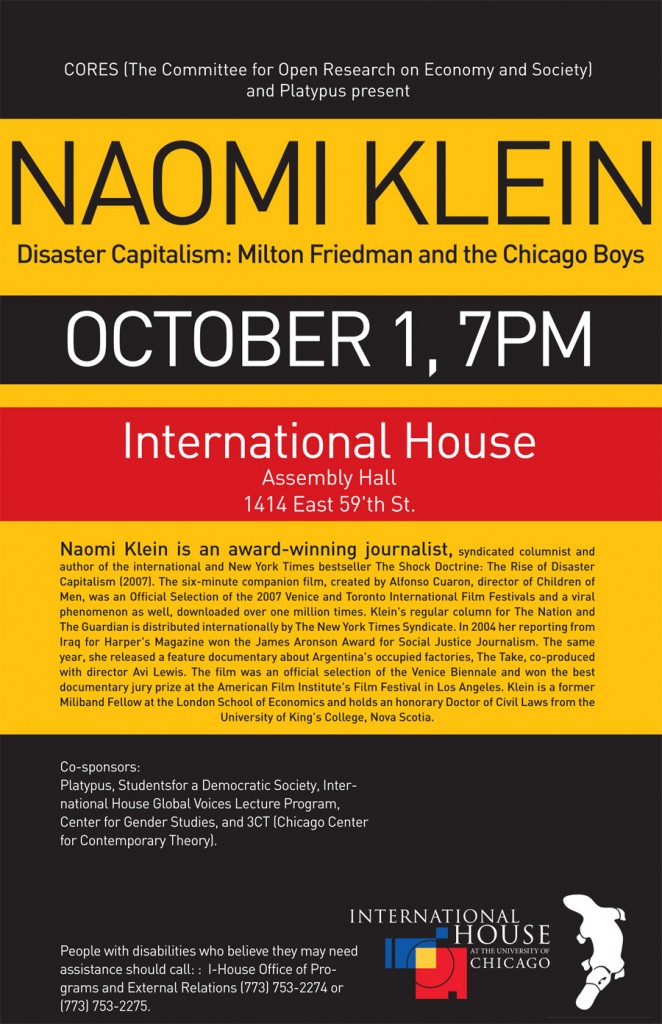A rejoinder to Peter Hudis on “Capital in History”
Chris Cutrone
HISTORICAL CONSCIOUSNESS ARTICULATES the problem of what “ought” to be with what “is.” The question is how the necessities of emancipatory struggles in the present relate to those of the past. The tasks revealed by historical Marxism have not been superseded but only obscured and forgotten, at the expense of emancipatory social politics in the present.
Dunayevskaya and post-Trotskyism
The problem with Raya Dunayevskaya lies in the belief that there has been any real theoretical or practical political progress since the failure of the revolutions of 1917–19. This imagined progress is explicitly or implicitly assumed in all “Trotskyism” and post-Trotskyism.
Contrary to the prevailing views of post-Marxism, the high-water mark of progress in the movement for human freedom was in the practical politics and theoretical self-understanding of Lenin and Trotsky’s Bolsheviks in Russia and Rosa Luxemburg’s Spartacists in Germany. We have not progressed beyond the horizon of such political practice and its theory, but only regressed and fallen below this threshold. We urgently need to attain its spirit anew.
For the past half century, revolutionary “Left” politics, Marxist or otherwise, have remained stuck in the antinomies of “spontaneity” and “organization,” “participatory democracy” and “vanguardist” politics, etc. Meanwhile, the historical moment of 1917–19 and its protagonists in thought and action remain enigmas to us.
A repressed historical fact: neither Lenin nor Luxemburg was a “vanguardist” or a “spontaneist.” These and other phantasies —indeed, any apparent resolution to, and progress beyond, the genuine political problems of social emancipation beyond capital revealed in 1917–19— are pernicious illusions.
Dunayevskaya never properly registers the problem of regression. The most problematic assumption is that coming later means knowing better. But newly emergent forms of “resistance to capital” might be symptomatic of regression, and thereby not point beyond capitalist social relations any more — and perhaps far less — than proletarian socialism did in the early 20th Century. It is not a matter of such new forms of politics expressing advances in social-political consciousness, but rather the effects of the horizon of a Marxian anticapitalist politics slipping away.
Hudis’s conception of capital as the domination of living labor by abstract labor leads to his equating all forms of resistance to capital as forms of “living labor’s” protest against and purportedly immanent attempt to overcome capital.
Such an analysis finds “new” forms of anticapitalism in the social movements of the 1960s “New Left” (e.g. women’s and gay liberation, black power, anti-colonization). The ”New Left”, however, actually represented a turning away from the problem of capital.
Why? Because only through proletarian socialism does the problem of the “contradiction” of capital —the self-contradictory character of proletarian labor in both its “abstract” and “concrete” dimensions— come to light. For capital is not merely the abstract dimension dominating the concrete, “living” dimension. It is rather the ways the abstract and concrete dimensions are related through market or state forms. Capital is the mode of self-relation of the proletariat and its consequences as a social-historical totality. All forms of “resistance to capital” constitute its reproduction in an on-going way.
Proletarian socialism, on the other hand, is the movement that reveals the self-contradiction of capital most explicitly and intensely in its reproduction. Other symptomatic forms of coping with the capital dynamic do so only more obscurely. Only proletarian socialism, the most acute manifestation of the self-contradiction of capital, concretely points beyond it.
We need a proletarian socialist politics to manifest the problem of capital for us, so that we can begin to formulate a politics for getting beyond it.
The degree to which an approach such as Hudis’s attempts to be more open-minded about social struggles and their relation to the problem of capital, it actually conceals more than it reveals. Capital is a form of life, however “alienated,” and not just a form of domination “over” life. Hence, one cannot take the position of “life” against capital, of “living labor” against “abstract labor,” without naturalizing capital at another, deeper level.
Marx’s political vision: the “dictatorship of the proletariat”
Recognizing capital as a form of life also means recognizing the truly radical difference between a post-capitalist society and the society of capital. It is, in fact, too radical for us to really foresee, despite humanity’s struggle to realize it over the course of more than a century. To clarify the relationship between the historical present and a possible future, it is helpful to consider Marx’s political thinking on socialism.
Marx’s understanding of socialist politics is expressed most clearly in his notion of the “dictatorship of the proletariat.” For Marx, the “dictatorship of the proletariat” is not merely the overcoming of abstract labor by living labor, but rather the highest expression of their contradiction in the subjectivity of the commodity form.
Further, it expresses the contradiction of the democratic will of the producers in both their particular-“concrete” and “abstract”-general social dimensions. For example, the “participatory”-democratic ordering of the site of production will conflict with the more abstract “representative” democracy of political forms at a more general social level. In fact, the political circumstances of socialism would likely produce social conflicts, and hence politics. In a sense it would be, by comparison with the present, the first time in which authentic social-politics can be practiced.
In this sense, the “dictatorship of the proletariat” marks the end of politics as we know it, and the beginning of politics in a new and more advanced sense, with the working class and its activity helping to point beyond the social dynamic of capital. I disagree with Hudis that historical revolutionary Marxist protagonists such as Luxemburg, Lenin and Trotsky adopted a fundamentally different conception of the future of politics than Marx. Each of them, to the contrary, recognized the necessary leading, “vanguard” role of the working class in the attempt to democratize, or bring under conscious human control, the social process set in motion by capital.
The dynamic of capital does not evaporate through the activity of the working class. Quite the contrary, it is through this activity that capital, as Marx understood it, comes into being. Through the “dictatorship of the proletariat,” however, the working class plays the necessarily leading role globally in addressing the problem of capital and its effects. In other words, it is the political means by which the social problem of capital is revealed so that it can begin to be overcome.
The proletariat then becomes for the first time, in Lukács’s Hegelian-Marxist terms, the subject-object of (its own) history. At the same time, the proletariat as a class begins to cease being the self-contradictory “subject-object” it is today under capital. The proletariat, when these conditions are met, becomes itself for the first time while ceasing to be what it has been — constituted by and reconstitutive of capital — and thus begins to overcome and abolish itself.
The most potentially “participatory” concrete form of democracy, that of “the producers,” must be recognized as the highest expression of the subjectivity of the commodity form, the subject-object relation of the proletariat with its own social activity of labor — and not as its “negation.”
Hence, evading or otherwise abandoning Marx’s conception of the “dictatorship of the proletariat” means abandoning the struggle to overcome capital. We need to remember what this actually meant by way of studying the most developed expressions to date of such a politics. We must remember the tasks of the past still informing our present by recalling what it was that revolutionary Marxism sought to accomplish, despite its historical failure.
Remember the future!
The political thought and action bound up in the revolutionary moment of 1917-19 comprise a complex, rich heritage we neglect at our peril. This heritage, that of Luxemburg, Lenin and Trotsky and theorists in their wake, such as Lukács, Korsch, Benjamin and Adorno, is in the form of a set of problems to be worked through and not ready-made solutions. In order to recognize these outstanding problems of capital we must remember the future whose horizons of possibility informed the politics of the best traditions of revolutionary Marxism. Despite the limitations of Marxism as a historical movement, we nevertheless remain within the horizon of the history of capital and its social effects, whether politics today recognizes it or not. Hence, apparently paradoxically, it is by recognizing the horizons of possibility of capital as revealed in the past that we may recognize the limits humanity needs to overcome to realize its potential, emancipated future.
For example, in the earlier Marxist movement of the 2nd International (1889–1914), the women’s liberation movement took place as an integral part of the struggle for socialism, to which it was neither subordinated nor from which was it separated. Such Marxist socialists as August Bebel and Clara Zetkin, among countless other, now-forgotten, participants in this movement, achieved profound insights into the relation of traditional gender roles and sexuality to the radically changed circumstances of modern capitalism. They recognized how capitalism both drew upon and radically reconstituted, on a new and different basis, such “traditional” oppressive aspects of society. Furthermore, they recognized the obstacle to women’s emancipation capital had become and thus the fundamental connection between women’s and sexual oppression and other problems in modern society. It was only because of the subsequent degeneration and conservatization of this movement, due to a series of failures and defeats, that a separate “feminist” movement had to come into being in the course of the regression of the 20th Century. Embracing the history of feminism thus amounts to naturalizing and adapting to such defeat and lowering the horizons of social politics.
Over-attentiveness to newly emergent — though concrete — forms of “resistance” to capitalism amounts to chasing our tails in the present and tailing after the effects of capital. Such over-attentiveness does not broaden but narrows our horizons; it does not, as Luxemburg demanded, engage, seize hold of and attempt to guide, in however limited ways, the changes in and of capital, so that we might get beyond them. “Resistance” in the present represents attempts to cope with and thus catch up with the social dynamics of capital. And the terms of such resistance have only worsened over time with the waning and disappearance of proletarian socialist politics.
Far from pointing to a post-capitalist society, such forms of social struggle under capital actually represent the limits of the present and its future, but only in obscure form, and thus not the actual breadth of the horizon of a potential future of and beyond capital. They express not the potentially new future beyond capital, but only the trailing edge, the wake of the newly emerging past in the present.
The post-’60s “new social movements” such as feminism and other forms of politics of social identity have expressed reconstituted forms of participation in capital. Not “getting beyond” the working class as might have been thought, such movements have opened the way to new and reconstituted forms of proletarianization. Moreover, they have done so in ways that have obscured the problem of the social totality in which they have taken place — the central role of the working class in the reconstitution of capital. The illusion is that such new forms of politics mean getting beyond the necessity of proletarian socialism, when in fact they have meant the avoidance of this task.
Such purportedly post-proletarian forms of politics have represented new forms of capital in an already-captured future of the present. They do not help us recognize the actual necessary tasks of a politics in, through and beyond capital. Only a proletarian socialist politics could do this. We need to remember the horizon of this politics, or remain forever trapped, knowingly or not, by its unfulfilled potential and betrayed possibilities. | §
Originally published in The Platypus Review #8 (November 2008).

